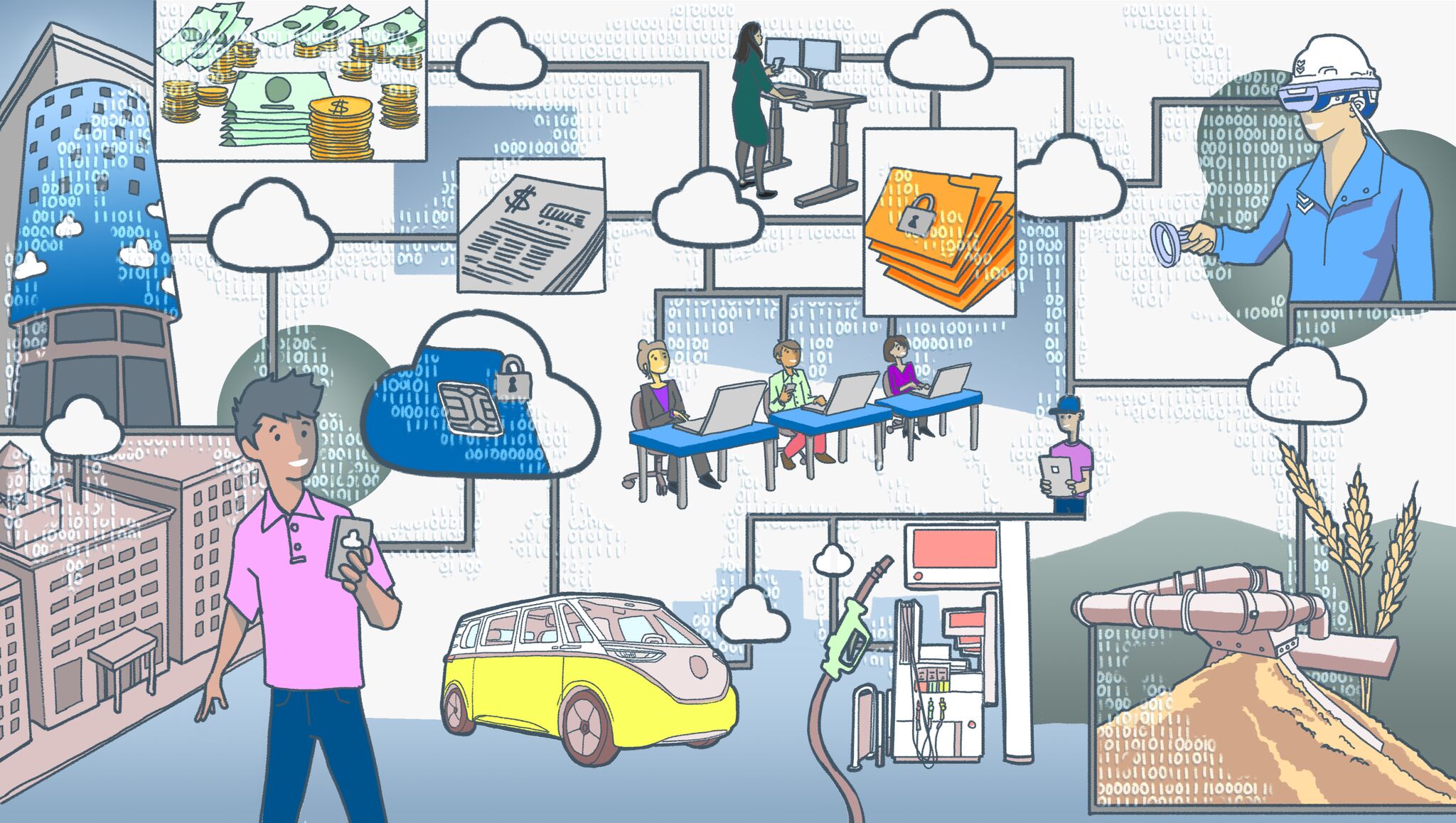Microsoft’s first quarter earnings show that we continue to gain momentum with enterprise customers across industries and solution areas. That momentum reflects a steadfast commitment to customer success, whether through cross-industry partnerships or through cloud- and AI-driven innovations that are transforming how organizations are building competitive advantages and creating value for their own customers.
On the partnership front this past quarter, Microsoft joined with Adobe and SAP to launch the Open Data Initiative. The initiative aims to address one of the biggest challenges facing organizations today: barriers between customer interaction data and operational data that limit the ability to create connections, identify insights and extract value from data in real time for a better overall customer experience. I am thrilled to share that consumer product leaders like Unilever, the Coca-Cola Company and Walmart have already expressed their interest and support for the initiative.
On the cloud and AI front, we are seeing organizations as varied as Mastercard, Volkswagen Group, Buhler, Grab and Sodexo embrace these technologies to drive innovation in payment processing, connected cars, ride-hailing apps, food safety and facility management. These customers recognize the advantage of having a consistent computing stack from the cloud to the edge — and they are not alone. In fact, there are several examples of customer innovation that impressed me in Q1. Here are a few:
Belgium-based brewer Anheuser-Busch InBev, whose operations range from a Beer Garage in Silicon Valley and a Global Analytics Center in Bangalore, India, is moving its IT operations to the cloud to drive commercial and operational growth and increase sustainability. The cloud has enabled the beer giant to build a global analytics platform that breaks down data silos for greater insights into its business operations.
Shell is investing in Azure, IoT and AI, including machine vision, to maximize productivity across its drilling equipment and make operations safer for customers and service champions at its 44,000 gas stations. Specifically, Shell is piloting a new cloud-based, deep learning solution that uses closed-circuit camera footage and IoT to automatically identify safety hazards and alert service champions for quick response and elimination of potential problems. Shell also announced C3 IOT and Microsoft as its official AI partner with C3 IoT on Azure.
IoT also is at the heart of CBRE’s efforts to use space more efficiently and improve the tenant experience. The world’s largest commercial real estate services firm is equipping buildings with heat and motion sensors for a better understanding of workplaces. Those sensors allow employees to see in real-time if spaces are open even if Exchange shows they are booked. The firm has also launched CBRE 360, a mobile app built on top of the Azure Digital Twins solution that enables employees to search for meeting rooms and with specific requirements like a Surface Hub or a Skype Room System.
Energy leader Chevron is already seeing measurable results after deploying hundreds of HoloLens devices across its global operations. The deployment means that instead of, say, a Houston-based Chevron inspector traveling monthly to a facility in Singapore to inspect equipment, Chevron can today perform real-time inspections using Dynamics 365 Remote Assist and identify issues or provide approvals immediately.
In the financial services industry, Nasdaq announced it is running its MarketSite streaming services on Azure, with plans to expand its iconic Times Square MarketSite experience to locations in San Francisco, Stockholm, Sydney and Bangalore, India. Nasdaq MarketSite is known for the dramatic video tower that illuminates Times Square with 19 million LEDs and seven stories of multimedia screens. MarketSite also includes full event experiences for companies listing on the exchange.
When we look at how businesses get work done, Microsoft 365 helps organizations of all sizes, from Goodyear to Rogers, empower their employees in the modern workplace. Rogers, a leading diversified Canadian communications and media company, has built a collaborative, agile, and productive workplace with Microsoft 365 and Windows 10 for its 26,000 employees. Microsoft’s modern workplace solutions have allowed Rogers to simplify its IT environment, meet security needs, and enable employee productivity and communication anywhere, on any device.
These examples only scratch the surface of the cloud- and AI-driven innovations taking place across every industry and every geography. They demonstrate how digital transformation can bring together people, data and processes in a way that generates value and competitive advantage. At Microsoft, my colleagues and I could not be more honored to partner with these organizations on their digital journey as they innovate the future of business.

